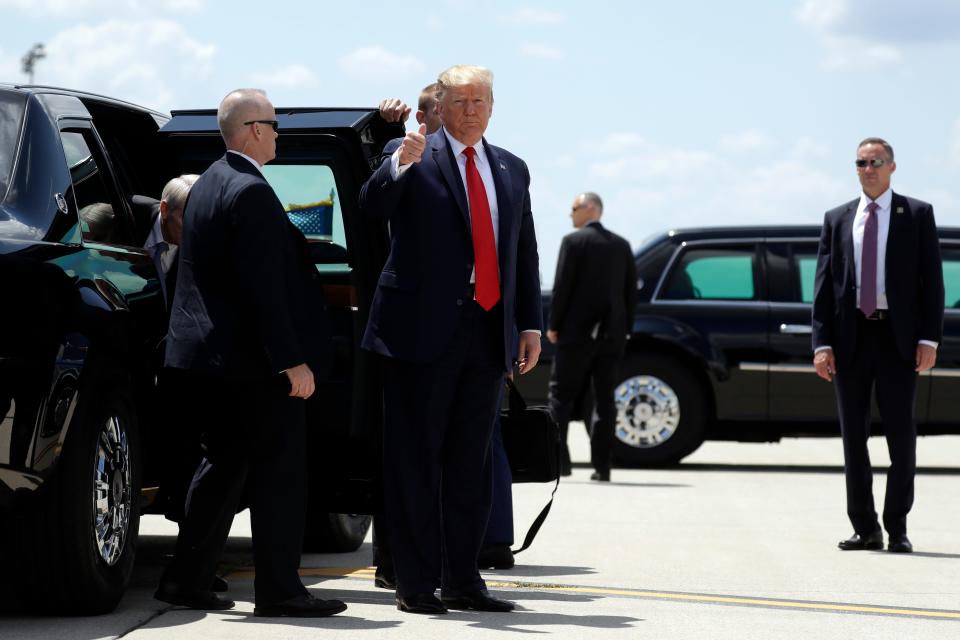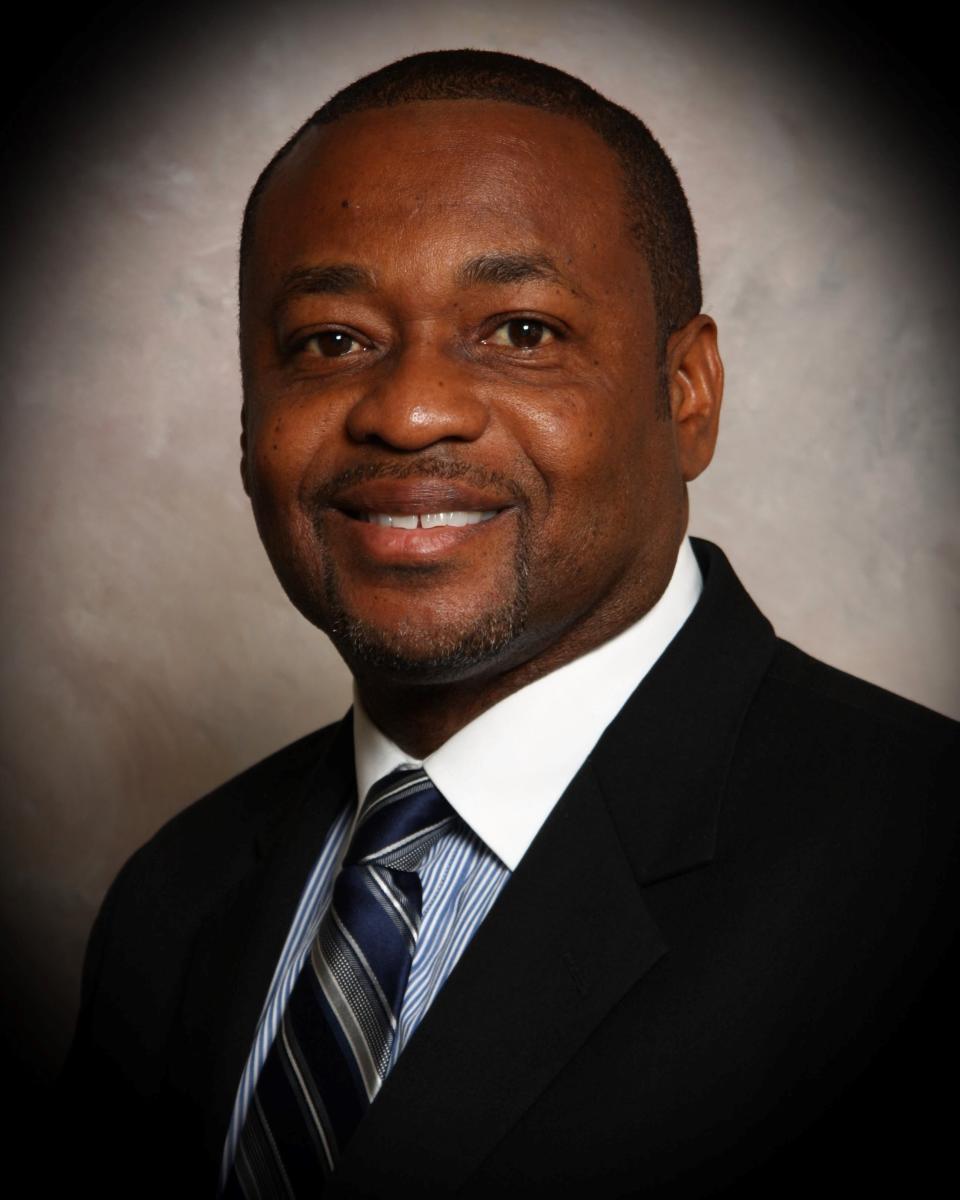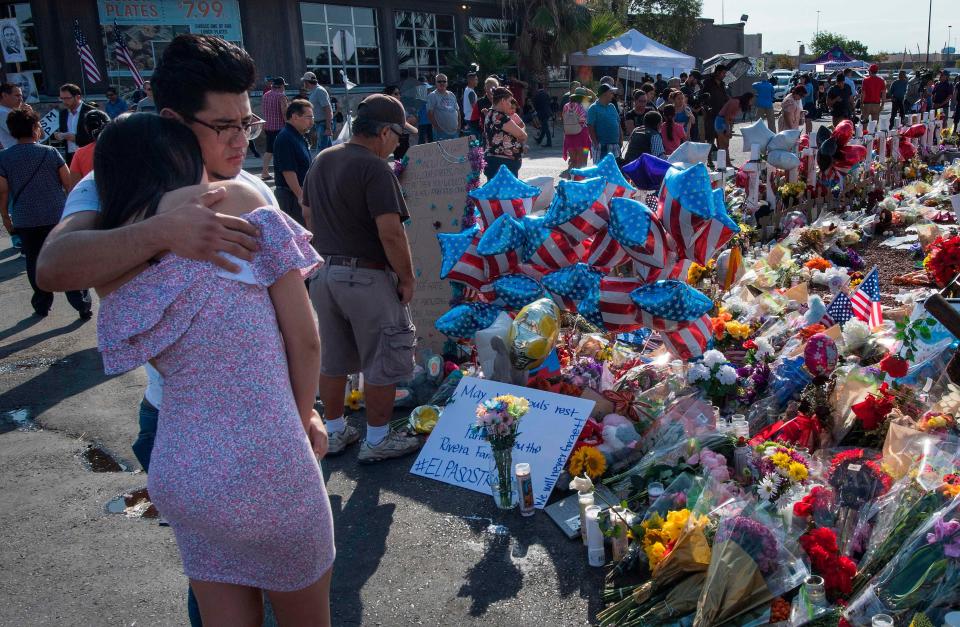Trump said 'mental illness and hatred pulls the trigger' in mass shootings. Experts beg to differ.
DETROIT – After a harrowing weekend in Texas and Ohio where mass shootings left 31 people dead and dozens more injured, President Donald Trump called for culture change to a stop the glorification of violence in video games and online platforms, an end to bigotry and hatred and reforms to mental health laws.
But his statements about mental health – referring to mass shooters as "mentally ill monsters" and suggesting "involuntary confinement" for some people with mental illness were off the mark, said Kevin Fischer, the executive director of the Michigan chapter of the National Alliance on Mental Illness.
He noted that there is little correlation between mental illness and violent killings.
"Study after study has shown us that is simply not true. It’s actually more often the reverse," he said, in that people living with mental illness are far more likely to be victims of violence than perpetrators.
"Racism, hate, white supremacy are not diagnosable mental illnesses."

'The glorification of violence': Video games, violence and mass shootings have a long, complicated history
Arthur Evans, the CEO of the American Psychological Association, the largest professional and scientific organization of psychologists in the United States, said it's important for people to understand that there is a fairly weak link between mental illness and mass shootings.
In a 2016 book, "Gun Violence and Mental Illness," published by American Psychological Association Publishing, researchers reported that mass shootings perpetrated by people with serious mental illness account for less than 1% of all yearly gun-related homicides.
"The biggest predictor of who is going to commit these crimes is violence, a history of past violence," said Evans.
"That is the single-best predictor of who is going to act in a violent way and commit these kinds of violent acts. In addition, we know that there are other factors – stressors, alienation, disaffection, a history of domestic violence – all of those contribute to people’s likelihood to act out in violent ways. Mental illness is in there, but not as strong as some of these other factors."
Access to guns also is problematic, Evans said.
"If we know someone is at risk of hurting themselves or other people, you restrict their access to weapons," he said. "We know that it can save lives when it comes to suicide. We know that it can save lives when it comes to homicide."
However, correlating mental illness directly with mass shooting doesn't work out statistically, Evans said.

"The United States has 5% of the world’s population but 30% of the world’s mass shootings," he said. "We don’t have 30% of the world’s mental illness. The facts don’t bear out that way."
Fischer said that what concerns him most about the statements the president made in his Monday morning speech is that they could add to stigma already associated with people living with mental illness. They could discourage, rather than encourage, people to seek help.
"For the president to make a statement like, 'Mental illness and hatred pulls the trigger, not the gun,' is dangerous because it further stigmatizes people with real mental illness, and unfortunately continues to perpetuate the idea that people with mental illness are dangerous."
Evans agreed, noting 1 in 4 people will experience a mental health challenge in their lifetime, and the vast majority are nonviolent.
"We’re talking about conditions that are wide-ranging, and affect a lot of people," he said. "Many people don’t reach out for help because of the stigma associated with a mental health challenge, and I think this kind of language can contribute to that and make it harder for people to reach out for help."
Still, Evans said, it's a good thing that the president discussed mental health on a national platform.
"He acknowledged that in addition to mental illness that there is hate and bigotry that is underlying some of these acts," Evans said, even if some terms he used were "concerning because it reinforces the worst stereotypes or worst notions that we have about having a mental health challenge."

What are red flag laws?: How they could have made a difference in mass shootings in El Paso and Dayton
Stories: She worked in suicide prevention. Then one day she had to save herself.
Fischer agreed that more public awareness about mental health disorders is vital.
"I’m a very strong proponent of not only increasing access to mental health care but also educating the public about what is really mental illness vs. sometimes there are bad people who have bad intentions.
"Stigma is the leading barrier," he said. "If we can change the way we look at mental illness, more people will seek the help that they need and I think it makes us all safer.
"It’s a scary time," he said. "We need to be conscious of talking to our children and our spouses. If we’re feeling anxiety about what’s happening, the best thing to do is to talk about it, and not keep it in."
Follow the Detroit Free Press on Twitter: @freep.
This article originally appeared on Detroit Free Press: Mass shootings not caused by mental illness, experts say

